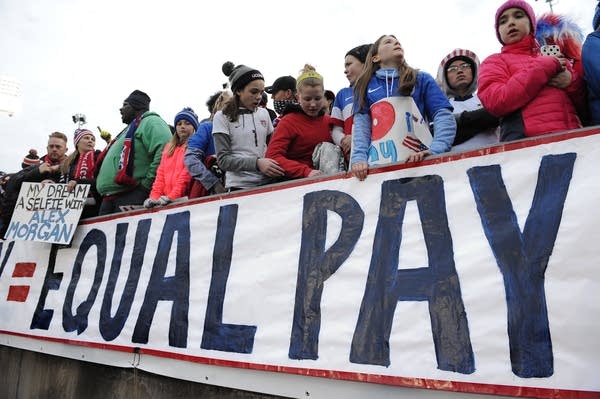Women are unhappy. What can we do about it?

Fans stand behind a large sign for equal pay for the women's soccer team during an international friendly soccer match between the United States and Colombia at Pratt & Whitney Stadium at Rentschler Field in East Hartford, Conn., in April 2016.
Jessica Hill | AP 2016
Go Deeper.
Create an account or log in to save stories.
Like this?
Thanks for liking this story! We have added it to a list of your favorite stories.


